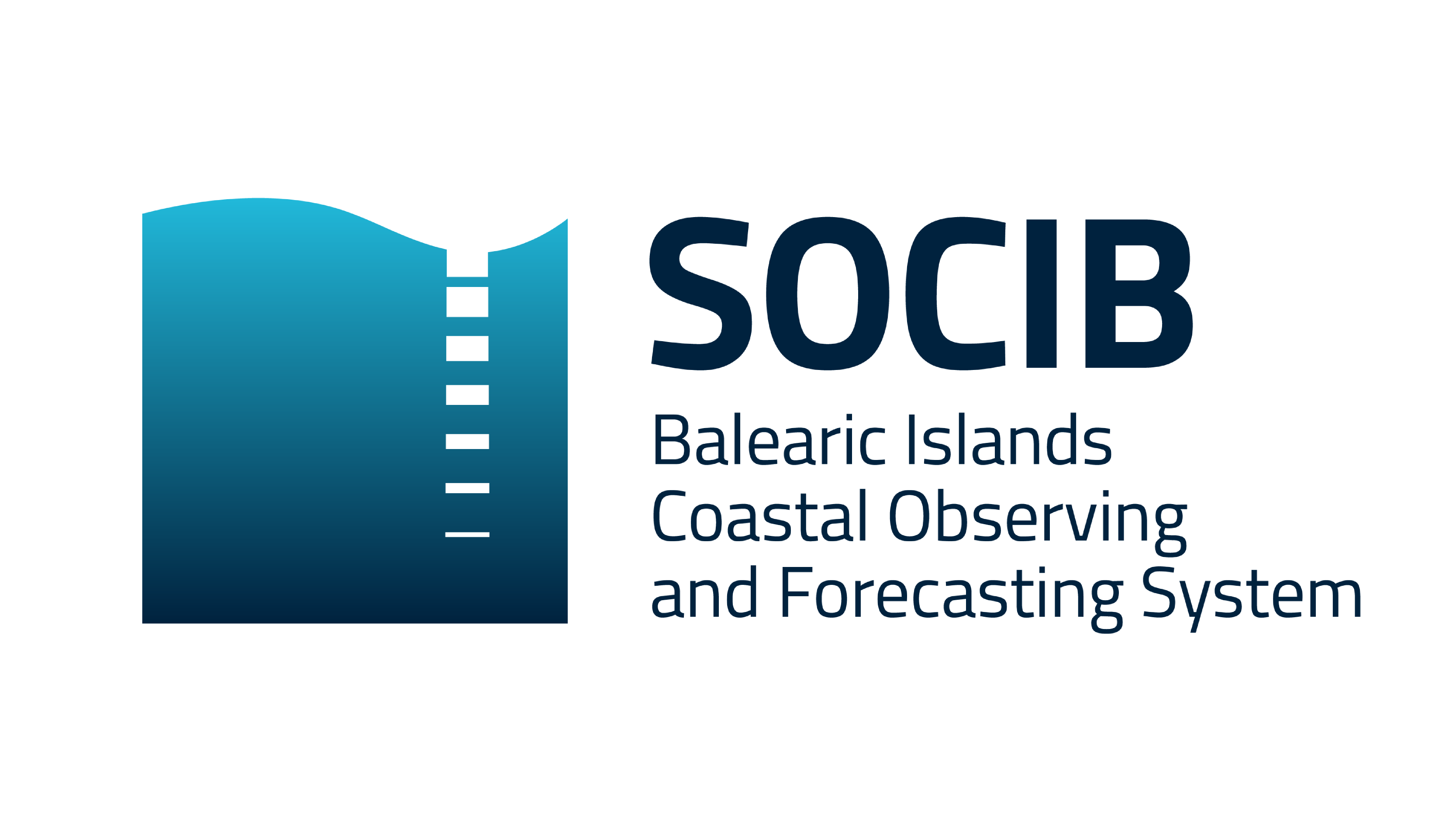The Balearic Islands Coastal Observing and Forecasting System (SOCIB) is a Unique Scientific and Technical Infrastructure (ICTS, for its acronym in Spanish), created by the Ministry of Education and Science and the Autonomous Community of the Balearic Islands in 2007, and joined by the Spanish National Research Council (CSIC, for its acronym in Spanish) in 2020.
The ICTS SOCIB is aligned with the Global Ocean Observing System (GOOS), associated Regional Alliances (GRA) such as EuroGOOS, MonGOOS, and GOOS Africa, to ensure long-term sustained observations in Europe’s seas, and to ensure access to data for the benefit of society, science, and innovation. To that end, it operates a multi-platform marine and coastal observation and forecasting system. The observing system continuously and sustainably monitors the western Mediterranean using: surface drifting buoys (eight SVP surface drifting buoys per year), profilers (three Argo-type profilers per year within the framework of the European Euro-Argo ERIC Consortium), sixteen coastal stations installed in different ports and/or coastal areas of the Balearic Islands, two metocean buoys installed in the Ibiza Channel and Palma Bay, a 24 m long Research Vessel (R/V SOCIB), two high frequency (HF) coastal radar stations, a fleet of seven autonomous underwater gliders and two beach monitoring systems. The forecasting system develops high-resolution predictive models. It currently has three models: (i) the western Mediterranean Operational forecasting system (WMOP), a forecasting model of the western Mediterranean that represents the evolution of currents, temperature, salinity, and sea level; ii) the Autonomous Swell Prediction System (SAPO), which shows the evolution of wave characteristics (height, period and direction) on the Balearic Islands coasts; and, iii) the Balearic Rissaga Forecasting System (BRIFS), a model for predicting the formation of meteotsunamis in the port of Ciutadella (Menorca).
Through the various observation platforms deployed mainly in the western Mediterranean, the ICTS SOCIB obtains oceanographic data (temperature, salinity, waves, and current velocity) and meteorological data (atmospheric pressure, wind speed, and air temperature) and provides access to the data (Open Data, Open Science) through the SOCIB Data Repository, certified with the international quality seal Core Trust Seal.
In addition, the ICTS SOCIB promotes knowledge transfer by establishing bidirectional links and continuous cooperation between science, public administration, the business sector, the educational community, and the general public. It furthermore trains future generations of oceanographers to develop their professional careers in marine sciences and technologies. The ICTS SOCIB also contributes to promoting citizens’ knowledge of the ocean (Ocean Literacy) through innovative activities and resources for all audiences.
















































